|
Another curio from the Lord Chamberlain's Plays Collection - a sketch performed at the Lewisham Hippodrome in April 1913 and set at an unnamed London Underground station, in which the Devil (later revealed to be a medical student in costume as Mephistopheles) and his wife (later revealed to be a nurse in costume as a Folly) are waiting for either a tube train or an airship to take them home. About halfway through the piece the Devil brags to a Policeman that he is inciting militant suffragettes to commit violent crimes. As he is getting arrested a suffragette runs in, puts something into a handily adjacent post box that sets it on fire, shouts "Votes for Women" and runs off, pursued by the Policeman. There's a reference to the Devil's wife being a hunger-striker too. Curious! Before this happens the Devil has been performing long rhyming verses to the audience about his supposed nefarious deeds and influence on the great and the good of London society, including this little bit about self-serving Parliamentarians: This sketch, or "phantasy", was written by Aliph Cheem, a pseudonym used by poet and author Walter Yeldham. It ran for a week at the Lewisham Hippodrome - on a packed bill that included the "Prime Minister of Mirth" George Robey, Nora Delaney "the girl in uniform", Arthur Aiston the Hebrew Comedian, and exhibition swimming family The Finneys. It's always interesting to find topical references to suffrage militancy in sketches and variety entertainments - and unless something suffrage-sounding is in the title or you are following up a lead from a review or listing in a contemporary newspaper like The Era, I've only ever found them by chance. When I first started researching suffrage plays in the LCP Collection, each play was bound in a huge volume with the other pieces that were submitted for license around the same date - a fantastic snapshot of the variety of work being produced on stages across the UK. Some playscripts are typed up by either professional typing agencies or by the writers themselves, others are in an existing published form, and some are handwritten in notebooks. The Reader's Reports used to be kept separately - you can still look for them in the LCP Correspondence index files - but are now placed at the front of the scripts. This means when you look through these big volumes you see a precis or synopsis of each play, and therefore get an idea of whether it is worth looking through the script for suffrage references! That's what happened in this case - there was nothing in the title The Devil Himself to suggest a possible suffrage moment, but the first lines of the Reader's Report piqued my interest: "A satirical trifle introducing a Mephistopheles who with his wife is waiting outside an Underground Tube Station for their midnight return to Hades. In his character of Devil the husband makes a series of topical illusions [sic] to his influence in Piccadilly, in Parliament upon incendiary Suffragettes and so forth..." I immediately looked through the script and found this conversation between the Policeman and the Devil. The latter has just been talking to the audience when the Policeman enters: This bit of business is the main practical effect - and the most action that happens - in the whole piece. The implication that the Devil is responsible for the destructive direct action of militant suffragettes, and the criticism of their relationship with the police is predictable and not very original, but it is interesting that the writer included the scene. The suffragette was presumably played by the actress playing the Devil's wife, as she is offstage for quite a while before this scene begins. She re-enters after the Policeman exits, back in her disguise as a Folly, complaining that the Refreshment Bar in the station waiting room is closed. The Devil then says "That's very said, particularly when you're not Hunger-striking". I haven't found anything to suggest that Yeldham was known as an anti-suffragist - The Devil Himself is mostly a showcase for his satirical writing in verse so it seems that the inclusion of the suffrage content was a way to make it topical for contemporary audiences, to jump on the popular bandwagon of negative and reductive portrayals of militancy, and to add some pace to the piece. By looking through the LCP volumes over the years I've found all sorts of surprise pop up suffragettes in pre WW1 content for the professional stage, often in variety sketches or revues. These pieces show us that audiences across the UK would have been familiar with the visibility and actions of militant suffrage campaigners, and in many cases the names of prominent militants too. While these characters are predominantly portrayed as disagreeable, ugly, loud, and wild - familiar stereotypes of suffragettes from this period - they are always active. They stand out. There are also however often negative allusions made to women in general in public space or in the workplace - women working in factories, selling produce on the street, type-writing in offices, or working as telephonists. An example of the latter is another play from 1913 that I found in the LCP Collection whilst browsing through a volume. Alice Up-To-Date, "A Revue in One Act and Five Scenes" was performed at the Liverpool Empire in November of that year. The piece follows the experiences of Alice and the White Rabbit (characters from Lewis Carroll's 1865 book Alice's Adventures in Wonderland) on a journey into central London, including a tunnel to "Prehistoric Piccadilly". Scene IV is set in "The Telephone Exchange" - the LCP Reader wrote "it's funniest passage is that which caricatures, without much exaggeration, the trials of telephone users under their neglect by chatty telephone girls". There's also a song in Alice Up-To-Date about the novelty of women wearing pyjamas, which ends: I really should see if I can find the score for that song! Increasingly, many of the large volumes of the LCP Collection are being unbound and each play kept in a separate envelope - which must be to minimise wear and tear on the elderly pieces of paper and bindings. This is understandable but sad for me as a researcher who has learned to look across a broad spread of playtexts - it unfortunately means you are unable to look through the whole volume, as you are only given the envelope with the play you asked to see. Whenever I do get one of the big volumes I'm always thrilled to look through the Reader's Reports on each script, hunting for a surprise suffragette on the Edwardian stage.
1 Comment
Susan Jeffs
9/3/2023 10:32:25 pm
So interesting
Reply
Leave a Reply. |
NaomiThoughts, reflections, bits of research Archives
April 2023
Categories
All
|
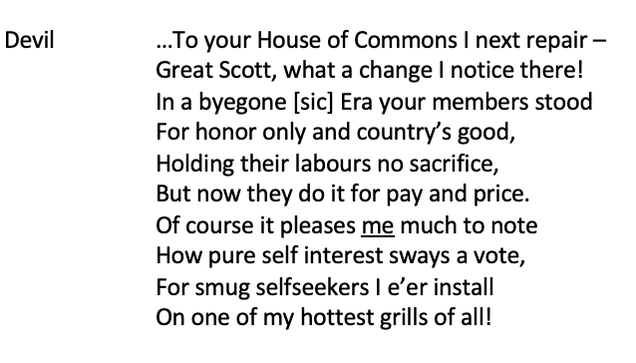
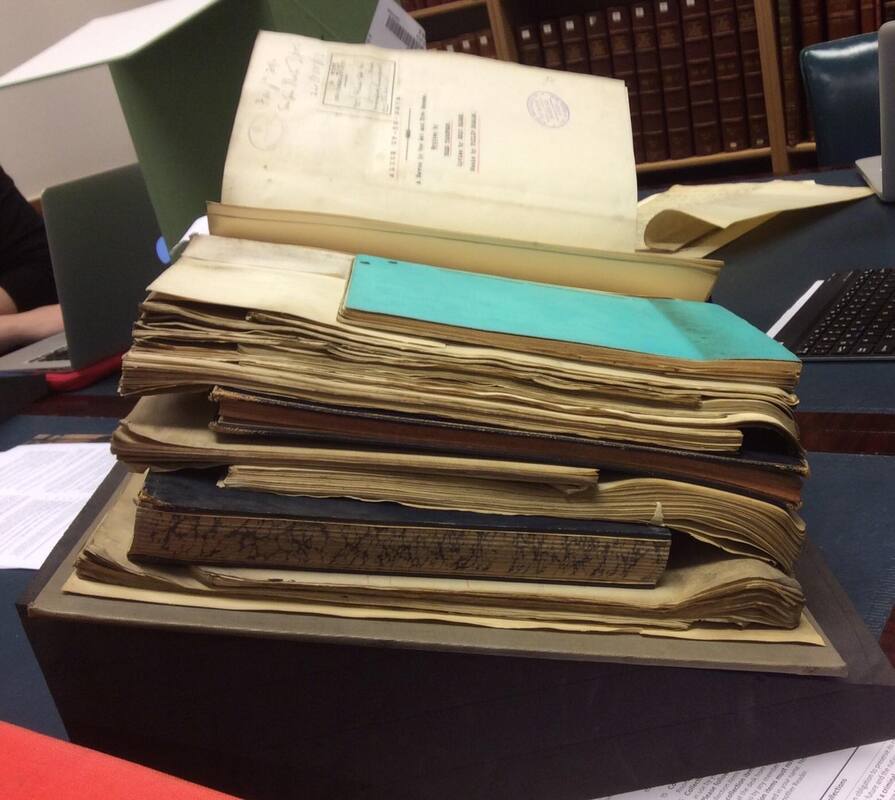
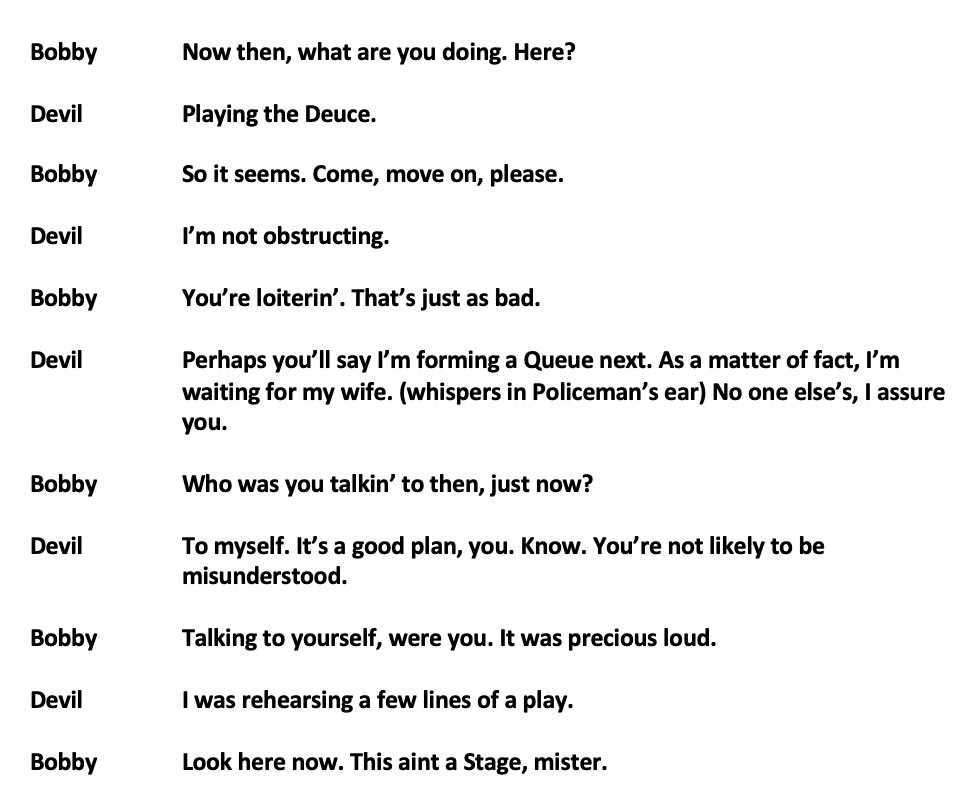
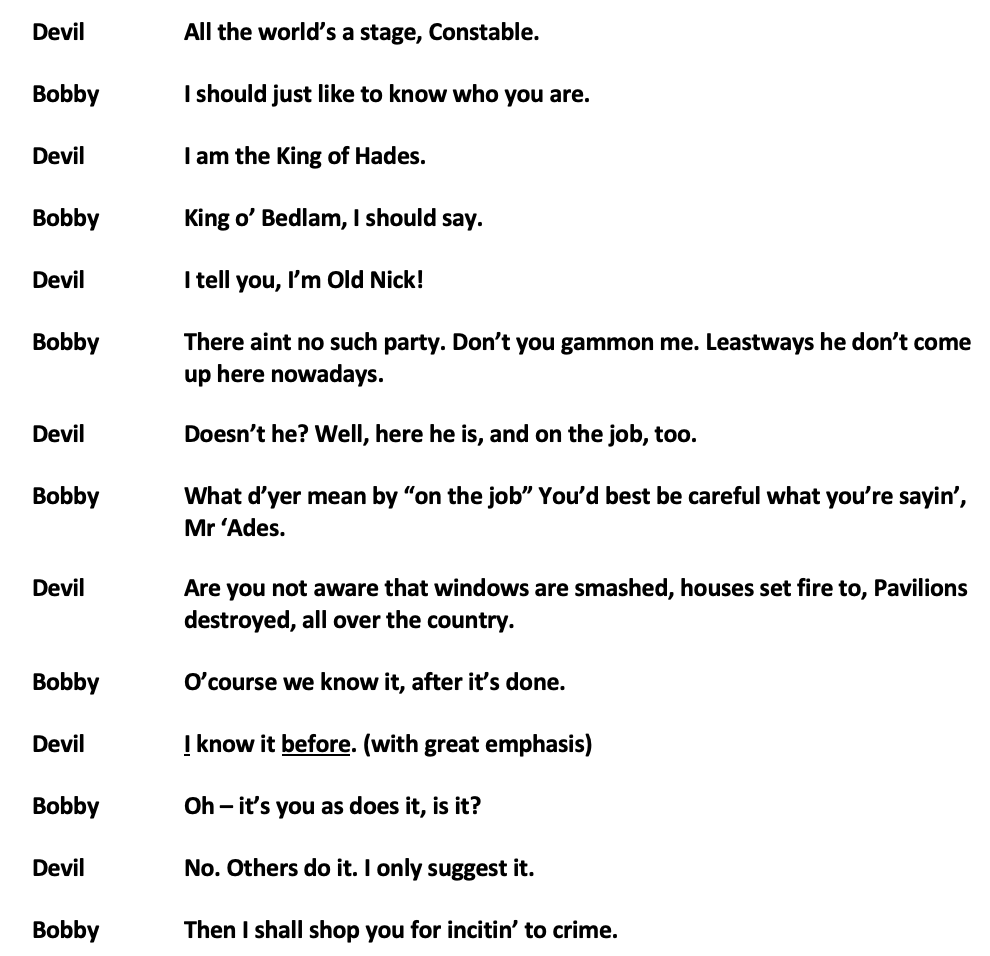
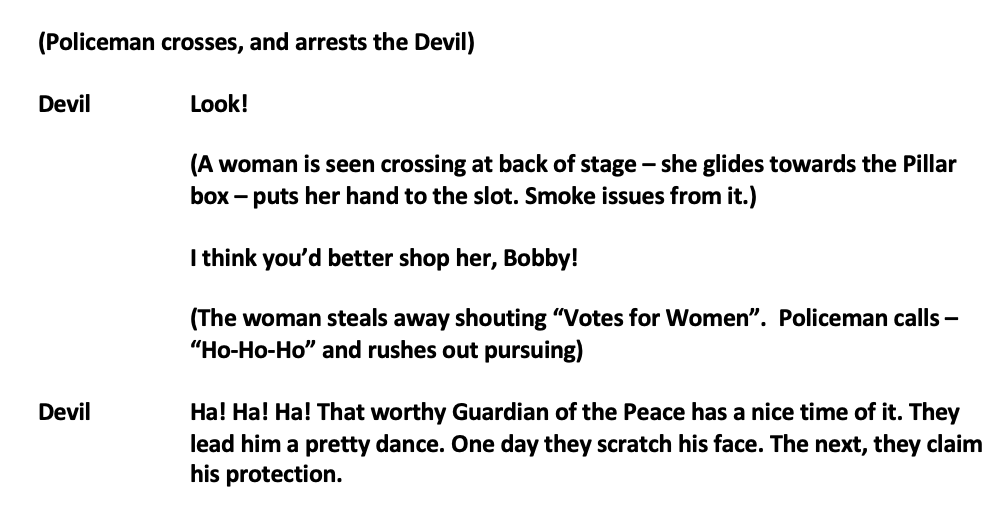
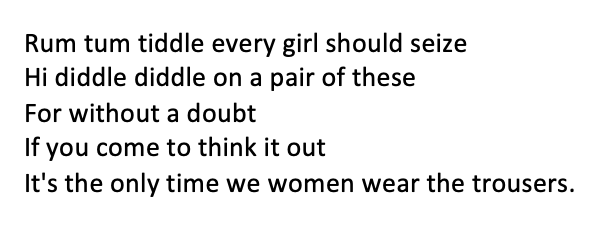
 RSS Feed
RSS Feed